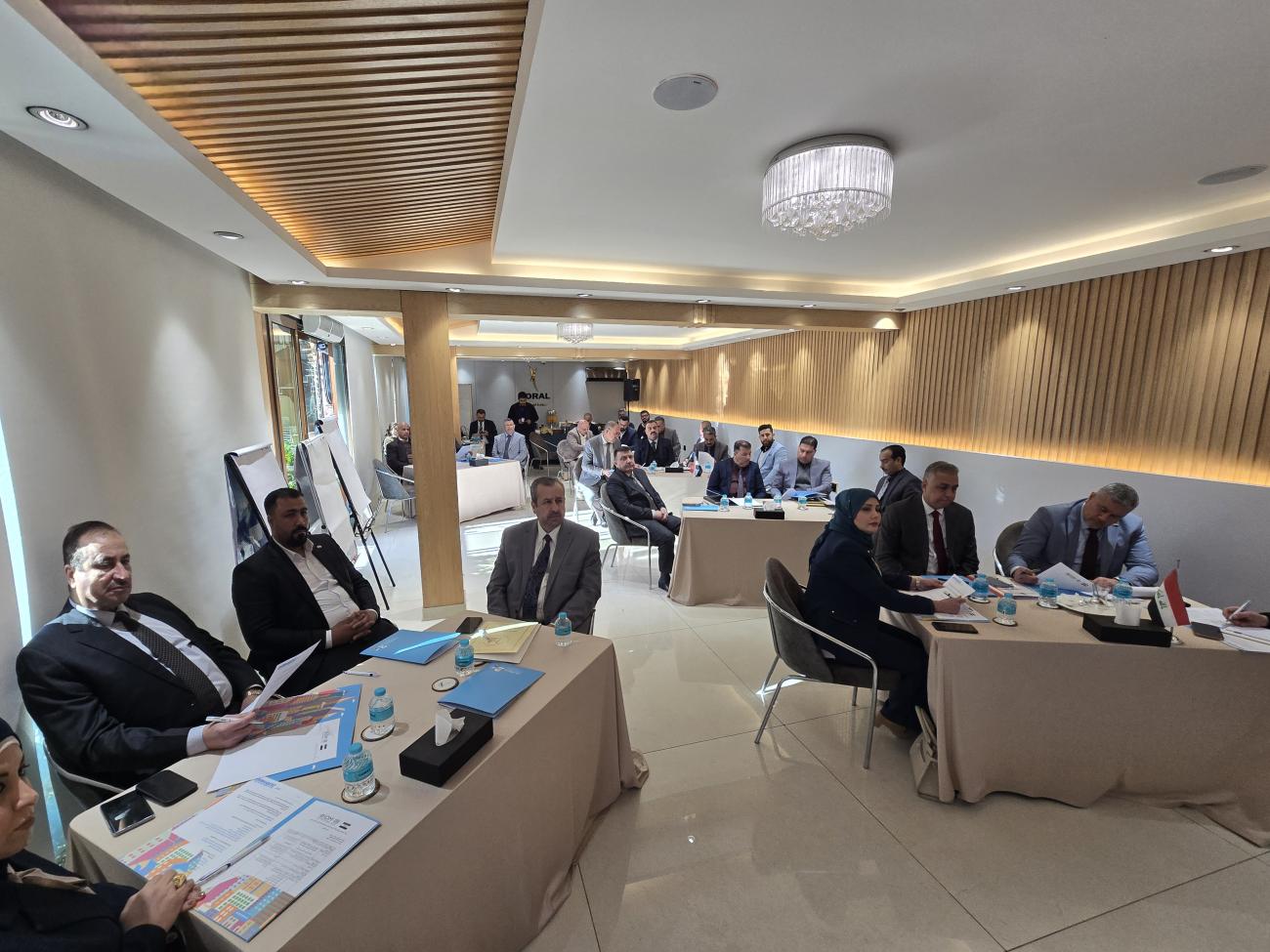Ending Protracted Displacement, Expediting Compensation to IDPs in Iraq

Strengthening Data Systems to Improve the Management of Internally Displaced Persons Referral Systems
Tackling low registration and disbursement rates for compensation services for internally displaced persons (IDPs) in Iraq, the Ministry of Migration and Displaced (MoMD) has pledged to speed up the disbursement process for families whose homes were destroyed nearly a decade ago during the conflict with Daesh. This commitment, aimed at overcoming a key obstacle to durable solutions for displaced populations, was endorsed during the first Steering Committee meeting held in December 2024, for the project on “Strengthening Data Systems to Improve the Management of Internally Displaced Persons Referral Systems,” jointly implemented by the International Organization for Migration (IOM) and UN-Habitat in Iraq.
Supported by the Internal Displacement Solutions Fund, the project proposes solutions to key bottlenecks that have hindered the compensation process. Central to these challenges are gaps in data systems and delays in disbursement, which severely affect vulnerable groups, such as female-headed households, persons with disabilities, unaccompanied minors, and the elderly.
Key Challenges Identified
During the Steering Committee meeting, participants discussed challenges identified in an initial assessment conducted by UN-Habitat. The assessment involved 24 directors from Iraq’s Central Compensation Committees and judges from subcommittees, focusing on displacement-prone areas like Anbar, Salah al-Din, Diyala, Kirkuk, and Ninewa. Key issues included tight submission deadlines, lack of staff capacity, and difficulties in verifying claimant documentation. Many displaced families lost civil and property documents while fleeing conflict, making it harder for them to prove their claims.
One of the primary solutions recommended for these challenges is the creation of an integrated and centralized database aligned with international standards. “The lack of an integrated database and standardized procedures has made it difficult to efficiently manage compensation claims,” said Mr. Ammar Ali Jum’ah, Director General of the Information Department at MoMD. “This database aligned with international standards will ensure that the most vulnerable families are prioritized, facilitating their reintegration and stability.”
Tailored Capacity Building
The project will also enhance government efficiency through targeted capacity building. Results from an initial assessment of data systems and capacity gaps, conducted by IOM in collaboration with MoMD and the Joint Crisis Coordination Center (JCCC), highlighted the need for developing an automated reporting tool for MoMD, and tailored training program for JCCC staff. Set to run from January to May 2025, this training will cover data management, geospatial analysis, and the use of visualization tools to support more efficient compensation processing.
Improving the Compensation Process
Following the Steering Committee meeting, a workshop was also held on December 2024, where representatives and judges from both central and subcommittees participated in discussions about improving the compensation process. Key recommendations included amending the compensation law to be more agile, re-establishing connections between subcommittees and the central committee, and integrating e-governance systems to streamline operations.
Through this project, the Government of Iraq will overcome technical barriers, ensuring that displaced individuals can access the compensation they need to restore their homes and livelihoods. Aligned with Iraq's Durable Solutions Roadmap, the project will bridge critical gaps in documentation and compensation, ensuring that individuals without proper identification are not excluded from receiving essential support. By enhancing data management and strengthening referral mechanisms, the project will also facilitate evidence-based policymaking, improve transparency, and ensure more effective resource allocation for property compensations.
With the anticipated improvements in data systems and governance, displaced people will have faster and more efficient access to compensation for damaged property. This will enable them to return to their homes and rebuild their lives, furthering Iraq’s long-term goals of achieving durable solutions for displacement and promoting sustainable development. Ultimately, IOM and UN-Habitat are supporting Iraq’s efforts to create a stable and peaceful future for its people and advance towards the end of protracted displacement.
For additional information, please contact:
Marcus Tudehope | UN-Habitat Iraq Project Manager
email: marcus.tudehope@un.org
Ana Paes | UN-Habitat Iraq Communication Officer
email: ana.paes@un.org
Mohammed Natheer| IOM Displacement Tracking Matrix Operations Officer
Email: mnatheer@iom.int
Deepika Nath | IOM Iraq Media and Communications Officer
Email: dnath@iom.int



